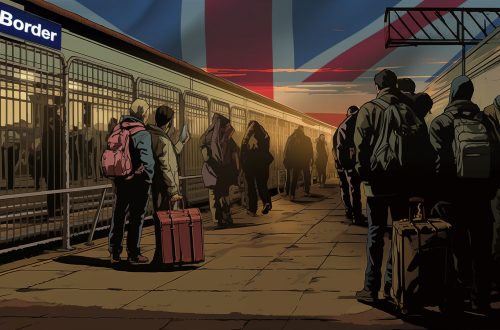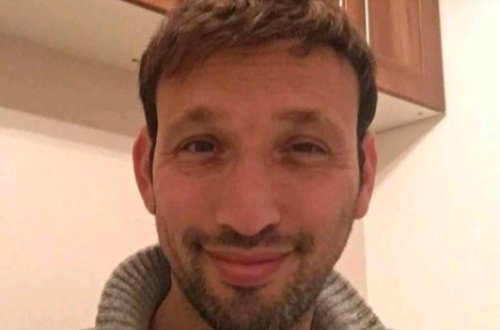This is a guest post by amie, who worked for some time as a defence attorney in apartheid-era South Africa
Part 1 is here
***
“The UN Human Rights Council has a webpage for all those who follow its proceedings. Although it is now in the midst of its fourteenth session, and has thousands of videos from its many meetings since 2006, smack in the middle of its home page is only one video link. It reads: “Human Rights Council 12th session Highlights,” and has a photo of Richard Goldstone. He is speaking about his libelous 2009 report that claimed Israel deliberately intended to murder civilians in the 2009 Gaza war rather than defend itself against eight years of rocket attacks.“
http://www.weeklystandard.com/blogs/syrian-rep-promotes-blood-libel-un-human-rights-council
In Part 1 of this post, I looked at some of Goldstone’s judgments and thought they reflected a judge who was more Prufrock [1] than either hero or villain. Yet he has now contrived to propel himself from Attendant Lord to Hamlet [2] centre stage, at least in that one arena which is getting set to launch Goldstone II.
The question in this Part 2 is whether a judge should accept an appointment under a fundamentally unjust or immoral legal system, or whether he should resign at some determinable point when the system steps over a boundary of unjustness. This was extensively debated in South Africa during the apartheid years, and the literature reflects a profound moral dilemma which remains unresolved.
One of the seminal debates in 1984, cited later by the Truth and Reconciliation Commission (TRC), was Should Judges Resign? between a contemporary at Law school, Ray Wacks, (answer: Yes) and John Dugard, my professor in International Law and in Jurisprudence (answer: No). That Dugard took this position is piquant, given his subsequent career as Special Rapporteur on Palestine at the UNHRC, which he zealously pursued as Castigator General of Israel’s unmitigated moral turpitude.
Goldstone apparently underwent the requisite soul searching, but appears to have resolved the matter fairly briskly, and far from having second thoughts, is now even more entrenched in his rectitude.
“I took an appointment to the bench, as did a number of liberal judges, and we had to uphold the law of the country. It was a moral dilemma to do that, but the approach was that it was better to fight from inside than not at all. The moral dilemma came up when I had to apply the law”
I have dealt with Goldstone’s record of applying the law in Part 1 of this post and returned a mixed verdict.
Goldstone, like many others purports to elevate “upholding the law of the country” to a stand alone moral principle. But if the law is plainly unjust, as Wacks argues, it strips the judge’s obligations of their moral content and renders his promise hollow.
Sydney Kentridge QC, doyen of the SA and now the English bar comments drily on the “constraint” defence:
“One is grateful for those judges who have done what they can to mitigate the harshness of the South African system. The only generalisation in which I shall indulge is that if one participates in a system that distorts justice, truisms about the limited function of a judge will not necessarily save one’s soul.”
While the matter appears settled in Goldstone’s mind, Ray Wacks is still revisiting the intractable conundrum in his academic writings [3] and it is a subject that warrants such serious treatment, rather than the kneejerk response of Goldstone detractors.
The more common position is that judges in SA had leeway to do some good by applying the libertarian principles of the common law to fill in the gaps left by ambiguities in the repressive legislation. The charge was that in the majority of cases they failed to exercise their discretion even when they were able.
The judges’ submissions in their own favour to the TRC claimed that they did so whenever possible, but that if they did this too obviously, they argued, the legislature would notice and close the loopholes, or even worse, “pack the Bench” with unjust judges.
The accusers of the judges before the TRC argued that judicial independence was a myth that had been exploded in the daily experience. Moreover, several meticulous empirical studies since the mid-1970s had demonstrated a judicial partiality towards the legislature and executive. As a result, it was alleged, “the basic fabric of the legal system had been subverted and become rotten with injustice.“
The TRC found that in all but a few cases, the Judges did not exercise such discretion as was available to them. The TRC concluded:
“…. in the rare circumstances where little or no judicial choice exists, certain steps short of resignation are open to the judge. These include criticism of legislative policy both on and off the Bench, within the limits of propriety. Such limits are largely determined by the judicial oath of office and the doctrine of the separation of powers. In the case of South African judges, the oath demanded that they administer justice ‘to all persons alike without fear, favour or prejudice and in accordance with the law and customs of the Republic’ Again, in the majority of cases, this did not happen.”
I pointed out in part 1 that in his Traub judgment, Goldstone not only failed to speak up, but made a gratuitously placatory statement to the apartheid authorities who deliberately skewed services to black hospitals. [4]
John Dugard was one of those who argued that there was room for the courts to subject apartheid legislation to review in accordance with common law principles of natural justice.
Wacks counter-argued that the common law, always an evolving system, had transformed under the Regime into a set of underlying institutional principles which justified a repressive application of the law. There was no longer a common law which would support an interpretation of statute that upheld liberty. Any judge who relied in his judgments on a common law of natural justice to ameliorate the effect of the legislation, was, to use a term derived from Ronald Dworkin, “lying”.
Dugard also argued that if the judge resigned, he might be replaced by a less moral judge. Goldstone adopts this as his main justification. It is difficult to beat about the Godwinian bush with this one: Without for one moment comparing Goldstone to a Nuremberg defendant, it is, of course, the Schlegelberger defence.
Others have argued that to resign is self indulgent narcissism to preserve one’s moral purity. Paula McBride’s statement before the TRC is a powerful antidote:
“Even the “liberal” apartheid judges gritted their teeth and got on with the job. In doing so, they sealed the fate of the oppressed. They stamped the respectability of their learning and the unassailability of their robes on the devious and cruel designs of the apartheid politicians and policemen. In many senses it could be argued that what they did was far worse than what the apartheid police did- they were educated enough to have known better.”
The TRC itself concluded:
“Part of the reason for the longevity of apartheid was the superficial adherence to ‘rule by law’ by the National Party (NP), whose leaders craved the aura of legitimacy that ‘the law’ bestowed on their harsh injustice. “
The fact is that whichever jurisprudential analysis you apply, in practice by the end there was vanishingly little scope to make a difference: it was game over in the cat and mouse game of lawyers finding loopholes and the legislature closing them.
But long before this, the “moral” judge in South Africa who chose not to resign was enacting a travesty of a legal process which Dworkin describes: either he was deciding the law on moral rather than legal grounds (in which case he was disobeying the oath of office Goldstone sets such store by) or he had to lie and declare the law to be other than what it had become. And he has to do this furtively; as Wacks describes this dilemma: (see the judge’s own plea before the TRC of necessary furtiveness)
“..to be “of any help” the lies, if they do not cost him his job, cannot be told, or the moral appeals made too often so as not to undermine the judge’s competence and integrity.”
Wacks investigates this “agonising and tormenting predicament” in finely delineated jurisprudential analysis to which I cannot do justice here.
What effect might constantly walking this tormenting judicial tightrope do to the perspective of the judge? I put forward a modest hypothesis. After the dangerous period has passed, he might with relief subject himself to honest self examination and express remorse.
Goldstone has never to my knowledge done so.
Perhaps he finds this too uncomfortable, and needs to surround himself with a protective penumbra of righteousness? This sheltering glow of infallibility carries forward to his Gaza mission.
Where he gave harsh decisions despite having another choice (see part 1) he must convince himself he had no choice but to apply the law. On the other hand, in the cases where he did apply “moral” interpretations, he would have had to “lie” (in the Dworkinian sense) that he was applying the law.
Could it be that the habit of “lying” carries forward into the sense of mission which he brought to his appointment as head of the Commission?
This may seem a tenuous hypothesis, but ever since reading the Report, I have struggled to understand how a judge steeped in the same legal tradition that I was, which I always regarded as one of conscientious integrity, could entertain the bizarre rationalisations found in the Report for not being prepared even to consider a swathe of pro Israel evidence, while being prepared to accept uncritically a swathe of at best dubious Hamas evidence.
I have not found a better reason that makes more sense. Perhaps more than I realised, the basic fabric of the legal system had been subverted and we were all contaminated.
I still recall one lecture in jurisprudence where Dugard told us we should take note of a new term: teleological. This described the process where a judge first decides what result he wants, and then tailors his reasoning to fit. I have since learned that this usage of the term is not entirely accurate, but comes in handy to describe the Goldstone report.
And it seems the habit of feeling one is justified in making the facts fit one’s sense of righteous certainty in one’s mission may have extended to Goldstone’s justification for accepting the UN mandate in the first place.
When challenged as to why he took on this mission where a respected figure such as Mary Robinson declined this one sided mandate, he has repeatedly argued that he did so only after he succeeded in getting the UNHRC mandate altered to include Hamas.
UN Watch has cast doubt on this process: It has raised questions around the changing format in a succession of documents issued by Goldstone. These, they suggest, indicate prima facie an intention to fudge the fact that the only legal mandate remains the original one sided one.
From UNWatch’s address to the UNHRC:
“Mr. President, why did Judge Goldstone and his Mission delete the name of this Council, the body that created his Mission? Was this an attempt to distance the Mission from this august body?”
All of this culminated in Judge Goldstone’s various and alternating arguments as to how he changed the original, one-sided mandate of S-9/1, and the guilty verdict that was issued from the start.
We were told he changed it with the former president; or by obtaining assent of the sponsors; or by the silence of this council after the president addressed the council in June. Legally, of course, none of these arguments have any basis whatsoever.
In truth, one need merely look at the final version ratified by the GA on 18 December 2009: there we see the original mandate, the original guilty verdict, unchanged, unamended.”
http://www.unwatch.org/site/apps/nlnet/content2.aspx?c=bdKKISNqEmG&b=1313923&ct=8104269
My verdict? The life and times of Goldstone cannot add up to the silver bullet to destroy his Report. However, they do cast a heavy shadow over it, and over all his protestations.
Footnotes
1
And indeed there will be time
To wonder, “Do I dare?” and, “Do I dare?” T.S. Eliot The Love Song of J. Alfred Prufrock
2
ibid
No! I am not Prince Hamlet, nor was meant to be;
Am an attendant lord, one that will do
To swell a progress, start a scene or two,
Advise the prince; no doubt, an easy tool,
Deferential, glad to be of use,
Politic, cautious, and meticulous;
Full of high sentence, but a bit obtuse;
At times, indeed, almost ridiculous —
Almost, at times, the Fool.
3
Most recently in Ratio Juris, voll 22 March 2009 128-49. My brutally condensed rendition of selected aspects of Wacks’ points cannot do justice to his closely argued exposition.
4
Goldstone was even timid in deciding the principle on which he reinstated Dr Traub. He could have found that Traub had a legitimate expectation to be heard before being dismissed: He declared that the common law of legitimate expectation was all rather new in SA and preferred to find safely on the grounds that the relevant statute gave her this right. It was left to bolder judges in the Appellate court to which the State appealed this case, to find in Traub’s favour on the basis of legitimate expectation.


